Václav Havel
Personal Truth as Political Theatre
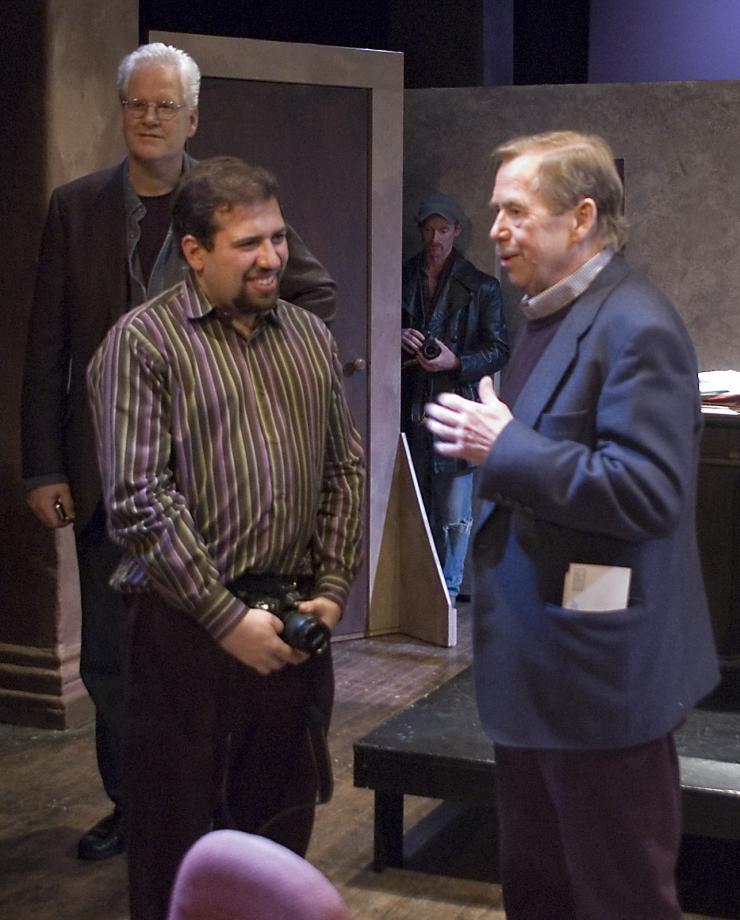
Truth and love must prevail over lies and hatred.
Václav Havel, playwright, former Czech President, leader of the Velvet Revolution, personal idol, was sitting in the front row of the Ohio Theatre in New York. I was sitting in the back. He was about to watch The Memo, the kickoff production of my Havel Festival—and one of the two shows in it that I had directed. Besides him was his wife. Behind him was a member of the Czech secret service.
The play began. To my great relief, Havel began to laugh. It felt like the best review I had ever received.
At intermission, I moved down briefly to the front row to chat with him. “Very good so far,” he told me, “but one thing. The silent character, he shouldn’t move around so much. He should be just standing, watching, somewhat apart. You know he’s there, but you don’t know he’s there too.”
As we spoke, I watched the secret service watching us in the corner of my eye. All his life, Havel had been watched, first by the Communist government agents, then by his own secret service. There was a reason that silent characters inhabited every play.
Art can present truths in ways that sneak around our unconscious prejudices. It is a way to speak the unspeakable.
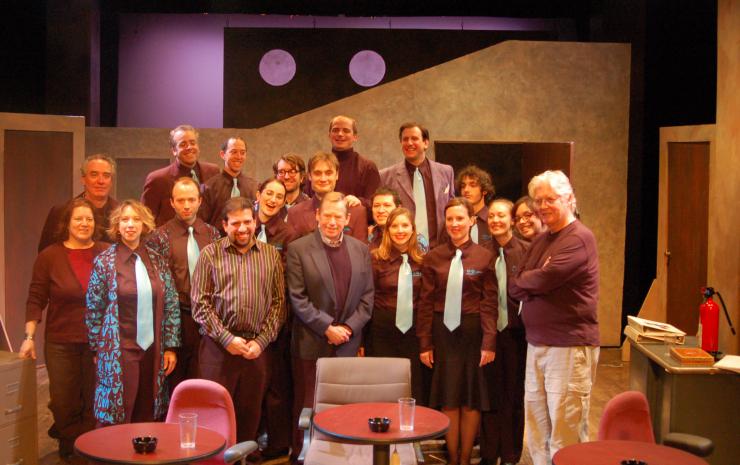
One of the most frequent questions I received during the festival was: how did you convince Havel to spend so much time at the festival? The truth was, there wasn’t much convincing needed. Havel saw himself the way I had always seen him: as an artist first, whose work spoke to politics. As it happens, that work inspired a nation into revolution, and launched him, despite his initial protests, into the presidency. But it all sprang from the art first.
You don’t know, he confided to me on a few occasions, how much it means to a playwright to see a festival of all his work. Even in the Czech Republic, nothing like the festival had happened. His plays had been banned during the Communist years, and despite a brief moment of Havel mania in Prague’s theatres when he became president, he was, above all, a political figure. To most, his new role eclipsed his old.
Not to him. And not to me. I had grown to love him through his plays, drawn to them because of the connections to the classic absurdists whom we both loved, Beckett and Ionesco. His plays were a new theatre of the absurd. Instead of being inspired by the absurdities of a World War and the existential questions that war had provoked, he was inspired by the byzantine logic of the Communist regime. He was living in absurd times, a time when lying was a matter of survival, so much so that speaking simple truths was a revolutionary act.
Isn't it the moment of most profound doubt that gives birth to new certainties? Perhaps hopelessness is the very soil that nourishes human hope; perhaps one could never find sense in life without first experiencing its absurdity.
Every time and place, I realized through him, has its own absurdities. When I produced the Ionesco Festival in 2001, it seemed like an unlikely time, when New York was in a period of peace and prosperity. Then September 11 happened, five days into the festival, and absurdism became painfully relevant once more.
For Havel, as he discussed in his famous essay, "The Power of the Powerless," the most subversive act one could engage in during the years of Communist rule was to refuse to repeat the lies the state required. The day a greengrocer refuses to put a sign in his window with a slogan he doesn’t believe in, the power of the government begins to crumble. Enough such tiny acts, and you have a revolution.
That essay proved to be prophetic. When the Iron Curtain fell, there were revolutions across Central and Eastern Europe. Only Czechoslovakia avoided one single casualty. Speaking truth out loud proved to be enough to topple the regime.
When a truth is not given complete freedom, freedom is not complete.
So here he was, in New York, in 2006. On a personal level, he was as kind, gentle, and generous a man as I might have hoped. He gave us carte blanche to interpret his plays, a responsibility I took very seriously. His favorite production of the festival turned out to be one of the most innovatively staged, Michael Gardner’s staging of Mountain Hotel. It was an intimate piece, walled in, with the audience inside. The actors sat amidst the audience, and they could sense his delight as they performed on all sides of him, implicitly bringing him into the show with them. He discouraged reverence and enjoyed artistic exploration.
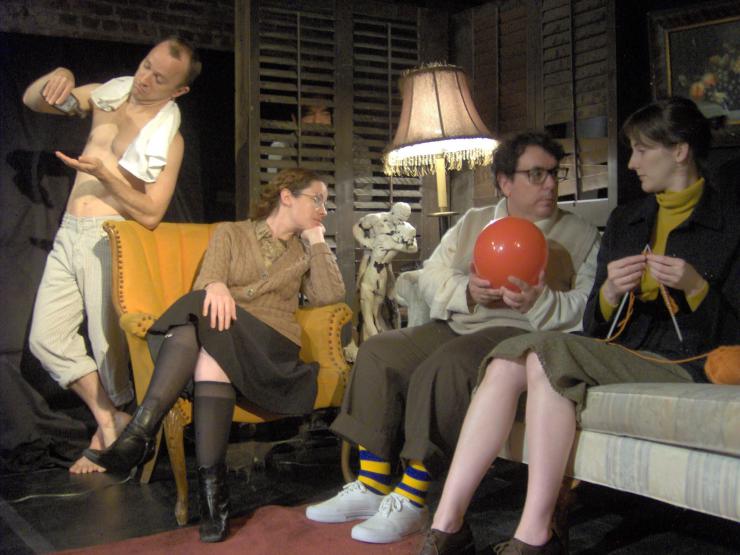
But that was part of his philosophy. He was an artist with a love of artists. The Velvet Revolution was hatched in a theatre, the Laterna Magicka, and the initial revolutionaries were students and fellow artists. On the anniversary of the Velvet Revolution he chose to come to our party in Brooklyn, in the tiny Brick Theater, rather than any of the most rarefied events on offer. He brought Madeleine Albright with him and declared he would rather be there, with us, than anywhere else for the celebration.
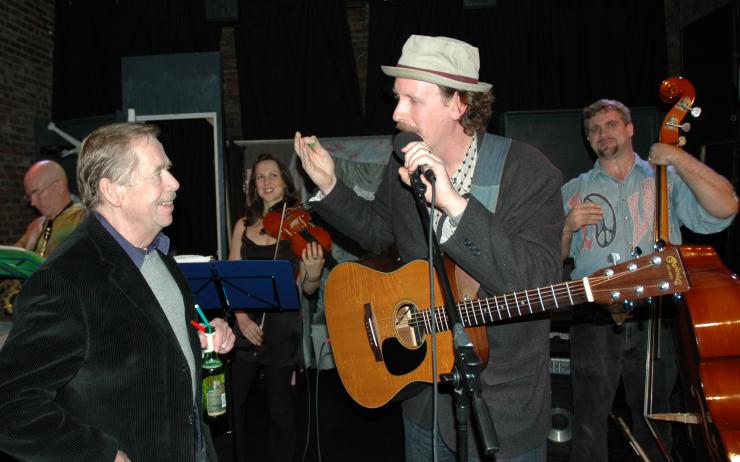
Another frequently asked question to me, during the festival, was: what made his plays political? On the face of it, many of the plays were oddball romps with an absurdist edge. What was hard to understand, outside of context, was how just writing simple truths about the dysfunctions of the society he lived in was deeply subversive. The government certainly understood, which was why his plays were banned. He was also jailed, multiple times, the longest stretch coming after he co-wrote Charter 77, the famous human rights document which became a thorn in the the government’s side. Its message was straightforward. You have signed the Helsinki Accords and agreed to its human rights conditions. But you do not follow those conditions. Lying, once again, was standard practice, and Havel and his colleagues were the ones to point out those lies.
Interestingly, in his plays, the characters whose failures he highlighted the most were not the stand-ins for government officials, it was the characters who were stand-ins for himself. Often his plays concluded with monologues of capitulation, in which the protagonist would rationalize to himself the reasons why he was giving in to the lies around him, convincing himself in convoluted ways that those lies were actually truths.
We still don't know how to put morality ahead of politics, science, and economics. We are still incapable of understanding that the only genuine backbone of our actions—if they are to be moral—is responsibility. Responsibility to something higher than my family, my country, my firm, my success.
The first time Havel was in jail, his jailors were able to convince him that his friends had abandoned him, his words meant nothing, and so he might as well sign a statement that he knew was untrue. Worn down by his experience, he signed the statement, an act he always regretted. Friends and colleagues quickly forgave it, but he did not forgive himself, and each play was a reminder to himself to never, never agree to that sort of lie again.
And that was the universal that I found so important in Havel’s work. The third question I was frequently asked, this one most often by journalists, was whether Havel’s work was politically relevant in today’s world. In order to underline the relationship, I wrote an essay for the festival program about the Bush administration’s deceptive use of language, but the relevance can be found in almost any administration, in almost any country.
What Havel demonstrated was that speaking truthfully and self-critically is powerfully political in itself. Honesty is subversive.
Professional politicians are adept at the art of saying the things that people are prone to believe, which is quite different than speaking the truth. And when reality diverges, the first instinct, for most people, is to find ways to justify that cognitive dissonance into a predetermined narrative, rather than to change the narrative. It is human nature to resist the change to our inner narratives, and one way around that resistance is art. Art can present truths in ways that sneak around our unconscious prejudices. It is a way to speak the unspeakable.
The mission of the theatre I run, Untitled Theater Company #61, is to be a Theatre of Ideas, because much as I love all aspects of theatre, it is the ability to place ideas on stage that truly excites me. More than any other form, theatre welcomes the conflict inherent in intellectual argumentation. Stoppard once called theatre a respectable way for him to contradict himself in public, and to me that is its most valuable function. I find myself less drawn to political plays that take advocacy as their primary mission. It feels too easy and less truthful to create straw men to knock down.
Lying can never save us from another lie.
What Havel demonstrated was that speaking truthfully and self-critically is powerfully political in itself. Relying on open questions that need to be solved rather than presenting answers that draw one into a predetermined narrative. It is simply a principle of good playwriting, but good playwriting that speaks difficult and complicated truths is in itself political. Honesty is subversive.
When I produced the Havel Festival, Havel was just turning 70. He had a few works to come, one major one, Leaving, that as usual drew on a critique of himself: a political leader forced to leave the halls of power, rationalizing his own hypocrisy. I and my associate artistic director, Henry Akona, were lucky enough to continue to work with him until his death in December 2011. We worked on a variety of projects, including a five volume Havel Collection and the English-language premiere of his final work, The Pig. The one thing that I found remarkable about him in the years I worked with him is that, unlike his characters, he had managed to remain essentially himself. Despite the presidency, the revolution, the power, every time I sat and talked to him, it simply felt like I was talking to any of my friends and colleagues whose passion was theatre.
Always, there were people watching, silently. In New York there was the secret service, but the few times we met in the Czech Republic there were hundreds of people casting sidelong glances as we sat and talked. Havel felt a responsibility to live up to his own philosophy, but it was a burden he bore gracefully, for after decades the art of living in public had become second nature. His life, by necessity, became its own performance, one that was critiqued both by deep enthusiasts and the harshest of detractors in his own country. Yet his willingness to endure the scrutiny and the questions never flagged, an example I tried to follow in the way I handled the questions presented by the festival or any other theatrical project since.
It will be nine years since the festival this October, and October 5 would have been his 79th birthday. For the occasion of his 80th birthday, next year, I will be working with the Havel Presidential Library Foundation to create an event to celebrate his life and work. I have attended many events for him since he passed away, some of which I organized. At these events, usually someone reminds us that although we think of Havel as a hero, it is important not to pretend that he was without flaws. He was human, like everyone else, struggling to do his best but not always succeeding. And he knew that about himself, he never pretended otherwise.
That self-wisdom may seem small, next to his great accomplishments. But for me, it is a powerful political statement and one of his most important legacies.

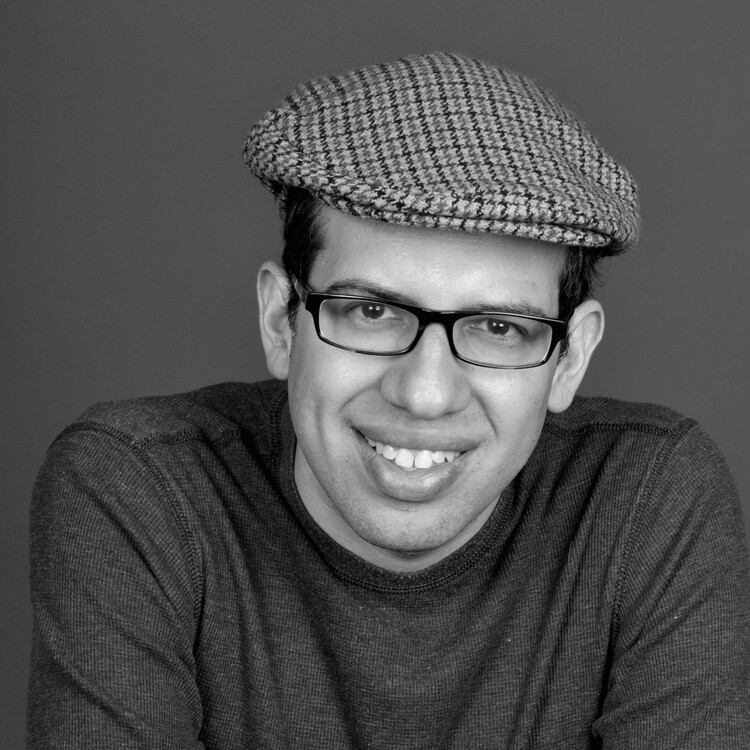
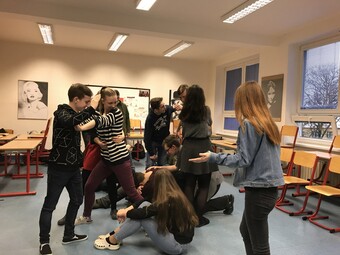

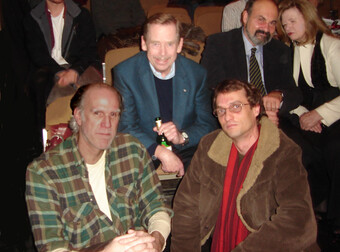

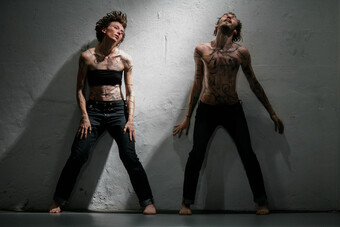

Comments
The article is just the start of the conversation—we want to know what you think about this subject, too! HowlRound is a space for knowledge-sharing, and we welcome spirited, thoughtful, and on-topic dialogue. Find our full comments policy here
What a fantastic article. I worked on a production in the '06 festival for Oracle Theatre Inc, and it was a terrific experience.
Glad it was a good experience Sergei! All the best.